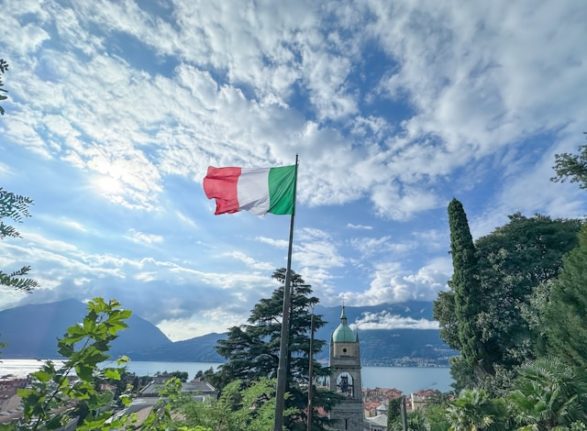While many non-EU citizens have to live on temporary visas for years before having the chance to get Italian citizenship, a huge number of people can take another path.
“I wanted to live in Italy; it made sense that I wanted to do it legally so I asked my mum if we could get citizenship,” says Sisk, who made the move in 2012.
Her arrival in Florence, with an Italian passport in hand, was the culmination of years studying Italian and gathering documentation proving her family's eligibility for Italian citizenship.
Sisk benefitted from Italy’s “ius sanguinis” (“right of blood”) law, through which foreigners can be granted citizenship if they can prove one of their parents or grandparents is or was Italian.
By 1920, more than four million Italians had emigrated to the US, so the law affects a huge number of Americans who may wish to gain Italian – and therefore EU – citizenship.
Sisk says that while many people wish to become Italian citizens “to have freedom to live and work in Europe”, her mother’s wish to become Italian was more “sentimental” than practical.
Gaining citizenship was no small task – the process took around five years and entailed following a paper trail of birth, death and marriage certificates. These in turn needed to be translated and notarized, a process which can quickly become costly.
Her family turned to the Italian Citizenship & Genealogy Services (ICGS) for guidance, while Sisk also suggests people contact language schools to have legal documents notarized.
Additionally, Sisk found unexpected resourcefulness in the Mormon church. “They helped us a lot because they have an extensive database of genealogy,” she says.
Once her mother gained citizenship, Sisk completed her own application and booked an appointment at the nearest Italian consulate in San Francisco.
It was another 18 months before a slot became available, but despite the setback Sisk says her own application “was easier than getting a driving licence”.
“I was really lucky, because my mum did most of the footwork,” she says.
Citizenship 'not enough to move to Italy'
Sisk holds a degree in Italian studies and speaks Italian fluently, although notes her linguistic skills and knowledge of the country were never taken into consideration.
“After submitting my application in person at the consulate, they took my fingerprint and mailed me a passport,” remembers Sisk, who moved to Italy the following year. “The hassle was waiting for the appointment to submit the application, not necessarily gathering the documents to submit the application,” she adds.
Long since her ancestors left their Sicilian village to seek a better life in the US, Sisk now works in Italian travel consulting, with a focus on Florence and Tuscany.
She advises Americans following a similar path to first think about their motivations for getting Italian citizenship.
“If you really want to move to Europe then do it, but it costs a lot of money and time.
“If you don't mind spending the money, consider paying someone to gather the documents and do all the necessary notarizations and translations. The paper trail process can get time consuming, especially if you have to go back more that one generation,” she said.
A decade after Sisk first decided she would seek Italian citizenship, she sees “no real disadvantages” to having gone through the lengthy process.
“It’s really improved my life in so many ways,” she says.



 Please whitelist us to continue reading.
Please whitelist us to continue reading.
Member comments